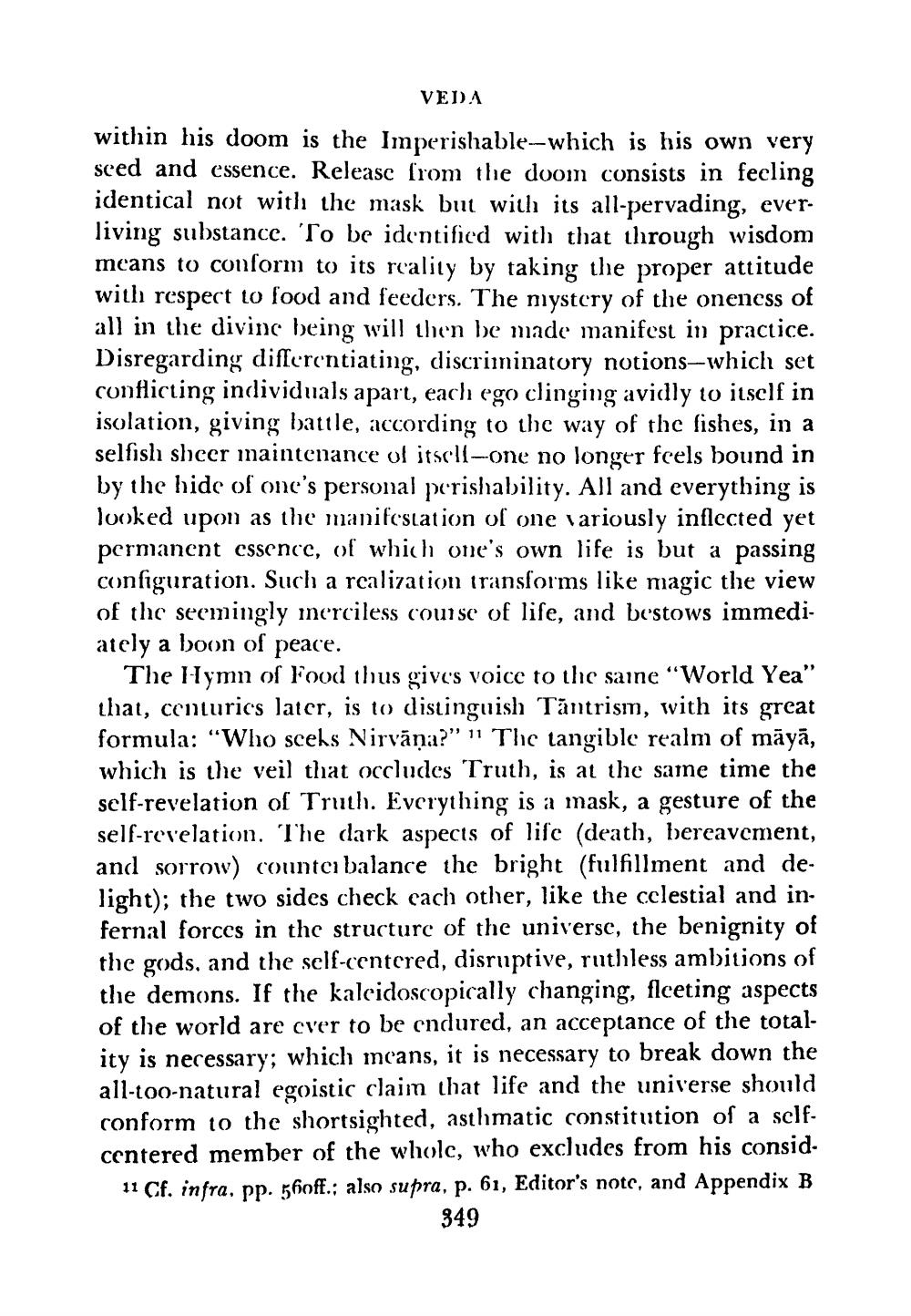________________
VEDA
within his doom is the Imperishable-which is his own very sced and essence. Release from the doom consists in feeling identical not with the mask but with its all-pervading, everliving substance. To be identified with that through wisdom means to conform to its reality by taking the proper attitude with respect to food and feeders. The niystory of the oneness of all in the divine being will then be made manifest in practice. Disregarding differentiating, discriminatory notions—which set conflicting individuals apart, each ego clinging avidly to itself in isolation, giving battle, according to the way of the fishes, in a selfish shccr inaintenance of itsell--one no longer feels bound in by the hide of one's personal perishability. All and everything is looked upon as the manifestation of one variously inflccted yet permanent csscncc, of which one's own life is but a passing configuration. Such a realization transforms like magic the view of the seemingly merciless course of life, and bestows immediately a boon of peace.
The Hymn of Food thus gives voice to the saine “World Yea" that, centuries later, is to distinguish Tântrism, with its great formula: “Who scehs Nirvāņa?" 11 The tangible realm of māyā, which is the veil that occludes Truth, is at the same time the self-revelation of Truth. Everything is a mask, a gesture of the self-revelation. The dark aspects of life (death, bereavement, and sorrow) countcı balance the bright (fulfillment and delight); the two sides check cach other, like the celestial and in. fernal forces in the structure of the universe, the benignity of the gods, and the self-centered, disruptive, ruthless ambitions of the demons. If the kaleidoscopically changing, fleeting aspects of the world are cver to be endured, an acceptance of the totality is necessary; which means, it is necessary to break down the all-too-natural egoistic claim that life and the universe should conform to the shortsighted, asthmatic constitution of a selfcentered member of the whole, who excludes from his consid. 11 Cf. infra. pp. 560ff.; also supra, p. 61, Editor's note, and Appendix B
349




